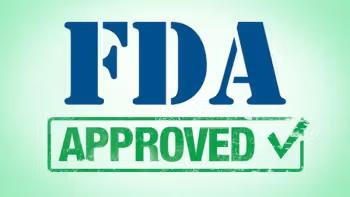
FDA Approves Adjuvant Nivolumab for Stage IIB/C Melanoma
The FDA has approved adjuvant nivolumab to treat completely resected stage IIB/C melanoma.
The FDA has approved nivolumab (Opdivo) to treat completely resected stage IIB/C melanoma in patients who are 12 years or older.1,2
The approval is supported by findings from the randomized, double-blind, phase 3 CheckMate-76K trial (NCT04099251), which enrolled 790 patients with stage IIB/C melanoma.
The primary end point was recurrence-free survival (RFS), which was defined as the investigator-assessed time between randomization and first recurrence—including local, regional, or distant metastasis, a new primary melanoma, or death.
In the nivolumab arm, the median RFS was not reached (95% CI, 28.5-not reached). The median RFS was not reached in the placebo arm (95% CI, 21.6-not reached) either (HR, 0.42; 95% CI, 0.30-0.59; P < .0001).
Of note, a subgroup analysis showed the unstratified RFS hazard ratio was 0.34 among patients with stage IIB disease (95% CI, 0.20-0.56) and 0.51 (95% CI, 0.32-0.81) among those with stage IIC disease.
“Within 5 years of diagnosis, one-third of patients with surgically resected stage IIB and nearly one-half of patients with surgically resected IIC melanoma see their cancer return, underscoring the need for additional treatment options that may help reduce the risk of cancer coming back,” John M. Kirkwood, MD, distinguished professor of medicine at the University of Pittsburgh School of Medicine and co-director of the Melanoma Center at UPMC Hillman Cancer Center, stated in a news release. “The significant recurrence-free survival improvement observed with nivolumab in CheckMate -76K is an important step forward for these patients,” he said.
Trial Design
The trial design randomly assigned patients 2:1 to receive either 480 mg of nivolumab or placebo via intravenous infusion. Patients received treatment for every 4 weeks for up to 1 year or until disease recurrence or unacceptable toxicity.
The trial did not included patients with ocular/uveal or mucosal melanoma, autoimmune disease, or any condition that required systemic treatment with corticosteroids or immunosuppressive therapies. Patients were stratified by AJCC 8th staging system edition (T3b vs T4a vs T4b).
Administration
The recommended dose for patients who weigh 40 kg or more is 240 mg every 2 weeks or 480 mg every 4 weeks. Patients can continue treatment for up to 1 year, so long as there is neither disease progression nor unacceptable toxicity. For patients who weigh less than 40 kg, the recommended dose is 3 mg/kg every 2 weeks, or 6 mg/kg every 4 weeks.
The most common adverse events reported in the trial included fatigue, musculoskeletal pain, rash, diarrhea, and pruritis.
Providers should also be aware of the risk of immune-mediated adverseevents, which can include pneumonitis, colitis, hepatitis and hepatotoxicity, endocrinopathies, dermatologic adverse reactions, and nephritis with renal dysfunction.
“Stage IIB and IIC melanoma patients may still face the threat of disease recurrence, despite the benefit of surgery, which can impact outcomes,” said Catherine Owen, senior vice president and general manager, U.S. Cardiovascular, Immunology and Oncology at Bristol Myers Squibb, in the press release. “This approval builds on our existing adjuvant indication in completely resected stage III or IV disease and now provides eligible patients with completely resected stage IIB or IIC melanoma an additional treatment option which may help prevent recurrence.”
References
- FDA approves nivolumab for adjuvant treatment of Stage IIB/C melanoma. FDA. News release. October 16, 2023. Accessed October 16, 2023. https://www.fda.gov/drugs/resources-information-approved-drugs/fda-approves-nivolumab-adjuvant-treatment-stage-iibc-melanoma
- U.S. Food and Drug Administration approves Opdivo (nivolumab) as adjuvant treatment for eligible patients with completely resected stage IIB or stage IIC melanoma. News release. Bristol Myers Squibb. October 13, 2023. Accessed October 16, 2023.
https://news.bms.com/news/details/2023/U.S.-Food-and-Drug-Administration-Approves-Opdivonivolumab-as-Adjuvant-Treatment-for-Eligible-Patients-with-Completely-Resected-Stage-IIB-or-Stage-IIC-Melanoma1/default.aspx
Newsletter
Knowledge is power. Don’t miss the most recent breakthroughs in cancer care.















































































